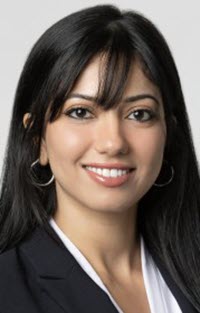Abstract
Excerpted From: Hilda Loury, Pachamama over People and Profit: A Case for Indigenous Ecology and Environmental Personhood, 47 American Indian Law Review 229 (2022-2023) (212 Footnotes) (Full Document)
 If corporations have legal rights, then why not rivers or forests?
If corporations have legal rights, then why not rivers or forests?
We are currently experiencing a global environmental crisis. Human-driven climate change and other global environmental changes are generating irreversible impacts to the global ecosystem, nearly beyond our ability to adapt in real-time. This Comment is dedicated to exploring how we got into this mess and how we can move toward a more healthy and sustainable environmental future.
In Part I of this Comment, we explore the depths of the global environmental crisis. Specifically, we examine how population growth, technological innovations, economic expansion, and general beliefs and practices are driving unprecedented global environmental changes. In Part II, we zoom in on the understated impact of beliefs and practices as major drivers for negative environmental changes. As a case study, we comparatively analyze the differences between the Indigenous worldview and the Western worldview with respect to the self and how it relates with nature, practices of use and consumption, and cultural priorities. We suggest that embracing an environmental framework modeled after Indigenous beliefs and practices is critical for moving toward a more healthy and sustainable environmental future.
In Part III, we explore the current state of U.S. environmental law as well as its deficiencies. We argue that embracing the doctrine of environmental personhood, or the Rights of Nature movement, is one practical and promising jurisprudential method for driving positive environmental changes. Analogous to corporate personhood, environmental personhood is a legal doctrine that calls for environmental entities to be granted legal rights, which would empower conservators to advocate for the entity's behalf in court, among other things. Often spearheaded by Indigenous communities or environmental advocacy groups, we survey successful international environmental personhood cases from Ecuador, Bolivia, Colombia, India, New Zealand, Canada, and the United States.
Finally, since the environmental crisis is global, so, too, must be the commitment to solving it. We therefore call for the doctrine of environmental personhood, or the Rights of Nature movement, to rise to the level of customary international law. We also highlight some creative directions for the doctrine of environmental personhood to expand.
[. . .]
In sum, our planet is currently facing a global environmental crisis--caused in large part by human activities, like population growth, technological innovation, economic expansion, and general beliefs and practices. Just as the environmental crisis is international, so, too, must be the commitment to solving it. Throughout this Comment, we have suggested that embracing an environmental framework modeled after Indigenous beliefs and practices with respect to our relationship with nature--such as a sense of interconnectedness with nature; values like balance and reciprocity; and collective conservation-- are critical for moving toward a more healthy and sustainable environmental future. The doctrine of environmental personhood, or the Rights of Nature movement, is one practical and promising jurisprudential method for driving positive environmental changes, domestically and internationally. As the Rights of Nature movement is arising globally in a handful of countries, the hope is that the doctrine will rise to the level of customary international law, which would be binding on all states.
Only together may we reverse the global environmental crisis. The future of our planet depends on it.
<hr>
Hilda Loury holds a juris doctorate from the University of Oklahoma College of Law, a master's degree in philosophy from San Francisco State University, a bachelor's degree in philosophy from the University of California Los Angeles, and two associate's degrees in philosophy and the humanities from Santiago Canyon College.


